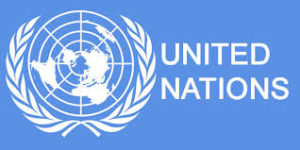EDITOR’s NOTE: The following was submitted by Ms. Heather Gray of Justice Initiative as a follow-up to her article on the 65th anniversary of the “We Charge Genocide” declaration to the United Nations. In answer to an inquiry from a skeptical reader, she presented the following official United Nations policy on the definition of genocide.
JUSTICE INITIATIVE
What Is Genocide?
by Heather Gray, hmcgray@earthlink.net
Gray & Associates, PO Box 8048, Atlanta, GA 31106
Preface: On December 17, I sent out information about the 65th anniversary of the 1951 “We Charge Genocide” document submitted to the United Nations by many leading Black activists in the United States. One of the notes I received about “We Charge Genocide” was as follows that basically questions the accusation of “genocide”:
Hello, Heather,
Apart from dramatic flair, I don’t see what is gained by erasing the distinction between the mass murder sense of genocide and racism or colonialism and their associated. white supremacist ideologies. If the term has meaning, the African American people of the US (as opposed to Native Americans) have plainly not been the victims of genocide.
Some of those in the 1940s and 50s also questioned this accusation of genocide until they looked closely at the United Nations definition of “genocide” which is, importantly, inclusive of much of what Black America has experienced since Africans they were brought in chains to the American shores as slaves. So in the 1940s and 50s they developed the document “We Charge Genocide” along with evidence of genocide in the United States and, importantly, delivered it to the United Nations in 1951. Below is the definition of “genocide” from the United Nations delineated in 1948.
Peace,
Heather Gray
hmcgray@earthlink.net
URL: Justice Initiative International
 OFFICE OF THE SPECIAL ADVISER ON THE PREVENTION OF GENOCIDE
OFFICE OF THE SPECIAL ADVISER ON THE PREVENTION OF GENOCIDE
What is genocide?
The 1948 Convention on the Prevention and Punishment of the Crime of Genocide (article 2) defines genocide as “any of the following acts committed with intent to destroy, in whole or in part, a national, ethnical, racial or religious group … “, including:
(a) Killing members of the group;
(b) Causing serious bodily or mental harm to members of the group;
(c) Deliberately inflicting on the group conditions of life calculated to bring about its physical destruction in whole or in part;
(d) Imposing measures intended to prevent births within the group;
(e) Forcibly transferring children of the group to another group.
The Convention confirms that genocide, whether committed in time of peace or war, is a crime under international law which parties to the Convention undertake “to prevent and to punish” (article 1). The primary responsibility to prevent and stop genocide lies with the State in which this crime takes place.
Genocide often occurs in societies in which different national, racial, ethnic or religious groups become locked in identity-related conflicts. However, it is not the differences in identity per se that generate conflict, but rather the gross inequalities associated with those differences in terms of access to power and resources, social services, development opportunities and the enjoyment of fundamental rights and freedoms. It is often the targeted group’s reactions to these inequalities, and counter-reactions by the dominant group, that generate conflict that can escalate to genocide.
The duty to prevent and halt genocide and mass atrocities lies first and fore- most with the State, but the international community has a role that cannot be blocked by the invocation of sovereignty. Sovereignty no longer exclusively protects States from foreign interference; it is a charge of responsibility where States are accountable for the welfare of their people. This principle is enshrined in article 1 of the Genocide Convention and embodied in the principle of “sovereignty as responsibility” and in the emergent concept of the responsibility to protect. The three pillars of the responsibility to protect, as stipulated in the Outcome Document of the 2005 United Nations World Summit, are:
(1) The State carries the primary responsibility for protecting populations from genocide, war crimes, crimes against humanity and ethnic cleansing, and their incitement;
(2) The international community has a responsibility to encourage and assist States in fulfilling this responsibility;
(3) The international community has a responsibility to use appropriate diplomatic, humanitarian and other means to protect populations from these crimes. If a State is manifestly failing to protect its populations, the international community must be prepared to take collective action to protect populations, in accordance with the Charter of the United Nations.
If the root causes of genocide revolve around inequalities between iden- tity groups, preventing genocide begins with ensuring that all groups within society enjoy the rights and dignity of belonging as equal citizens. Early prevention therefore becomes a challenge of good governance and equitable management of diversity. That means eliminating gross political and economic inequalities, and promoting a common sense of belonging on equal footing.
